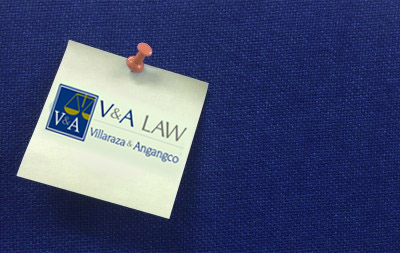 By Franchette M. Acosta, V&A Law
By Franchette M. Acosta, V&A Law
fm.acosta@thefirmva.com
The Philippine Competition Commission published its Rules on Merger Procedure on 23 November 2017. These Rules will take effect 15 days after publication. Significantly, the Rules revise the prescribed timing for filing the required transaction notice under the Philippine Competition Act. Under the law, mergers, acquisitions and joint ventures satisfying transaction thresholds must be notified prior to consummation. Relevant thresholds include the assets and revenues of the ultimate parent entity of the acquiring or acquired entity, the value of the transaction and percentage of the corporation acquired. The Rules require notification within 30 days from execution of the definitive agreement. Under regulations in place prior to the effectivity of the Rules, notification had to be given prior to the execution of the definitive agreements of the transaction.
Definitive agreements are defined by the Commission as those setting out the complete and final terms and conditions of the transaction, including rights and obligations between or among the transacting parties. Share Purchase Agreements, Asset Purchase Agreements, Joint Venture Agreements or other similar agreements are considered definitive agreements. Notification made beyond 30 days from execution of the definitive agreement even if prior to consummation of the transaction will result in the imposition of penalties on the parties. Failure to notify prior to full or partial consummation of the transaction will render the transaction void, and will also subject the parties to fines. A merger or acquisition is consummated where the parties have performed their obligations under the definitive agreement resulting in the transfer, conveyance, assignment or encumbrance of any right, title, interest, property or asset.
M&A review under the Rules follows a 2-phase process. Phase 1 review is conducted within a period of 30 days from complete notification and payment of filing fees. However, prior to the commencement of this period, the Commission is given an opportunity to review the submissions to determine completeness. Thus, within a period of 15 days from receiving the parties’ submission, the Commission will conduct a sufficiency check to verify if the parties have provided complete information and documentation. If the submission is complete, the parties will be directed to pay the filing fee. If the submission is determined to be incomplete, the period to conduct the sufficiency check will be effectively extended. The parties will be informed and will have 15 days respond and provide the needed information. In the meantime, 15-day Sufficiency Period is suspended.
The purpose of the Phase 1 review is to establish whether the notified transaction is likely to give rise to competition concerns, which must be subjected to further study. The Commission will clear the transaction for consummation if it determines that the transaction does not raise competition concerns. However, if he Commission is not convinced that the transaction does not raise competition concerns, review will proceed to Phase 2. For this purpose, the Commission will serve notice on the parties and request for additional information.
Phase 2 runs for a period of 60 days commencing on the day after service of Phase 2 notice. The transaction parties must respond to a Phase 2 request for information within 15 days from receipt. Failure to respond within the period shall result in the expiration of the parties’ notice, and the parties will have to re-file. However, if the Commission is in possession of alternative relevant information, it may decide to pursue Phase 2 review.
In the course of Phase 2 review, the Commission will evaluate whether the notified transaction will substantially prevent, restrict or lessen competition (SLC) in the relevant market. If it is concluded that the notified transaction is likely to result in SLC, the Commission will prohibit the transaction or impose conditions to address the anti-competitive effects. In the course of Phase 1 and Phase 2 Reviews, the transaction parties may volunteer commitments to remedy, mitigate or prevent competition concerns identified by the Commission. However, proposals for commitments will not be allowed after the PCC has rendered a decision.
This article is published for information purposes only, and should not be considered to be legal advice.
Sources:
Republic Act No. 10667 or the “Philippine Competition Act” and its Implementing Rules and Regulations
PCC Rules on Merger Procedure published on 23 November 2017
Recent examples of consent decrees in Korea and their implications























 Villaraza & Angangco Law
Villaraza & Angangco Law Kristin Charisse C. Siao
Kristin Charisse C. Siao Ma. Carla P. Mapalo
Ma. Carla P. Mapalo Richard Henrick I. Beltran
Richard Henrick I. Beltran







